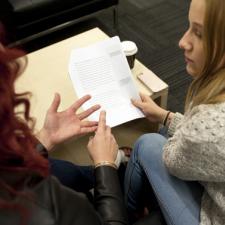Group Work Skills
Working co-operatively creates opportunities to:
- share ideas
- acquire broader perspectives
- tap into a wider pool of experience
- stimulate each other’s thinking
- clarify your own thinking
- realise there is more than one perspective on any topic
- discover that there is more than one answer to a question
Effective group management
Make ground rules
You should arrange a regular time to meet. Discuss what to do if someone dominates or does not pull their weight. Be open and honest about what kinds of behaviour or comments are unacceptable.
Set clear agendas and boundaries
Be clear about the purpose of the group and each meeting. Set an agenda and decide on how long to spend on each item. Be clear that meetings are for doing work, and make sure to limit socialising. Arrange meeting times and venues in advance, so that every group member possible can attend.
Check progress
If the group does not appear to be working well, address this directly and promptly. Each person should say how she or he feels and what he or she thinks can be done to improve things. Consider these questions:
- Are tasks shared fairly?
- Is somebody dominating the group?
- Is everyone considerate enough about each other’s feelings and ideas?
Task allocation
Be clear. Be fair. Set deadlines for completion and identify who has to work on each noted action.
Group roles
Define group roles early. There are many roles in a group (e.g., leader, timekeeper, devil's advocate, gatekeeper). Roles can also change over time. Make sure each member is informed and clear about his or her role and its responsibilities.
Sharing responsibility
Each member is responsible for her or his own actions. However, every member shares the responsibility for sorting out any problems within the group.




